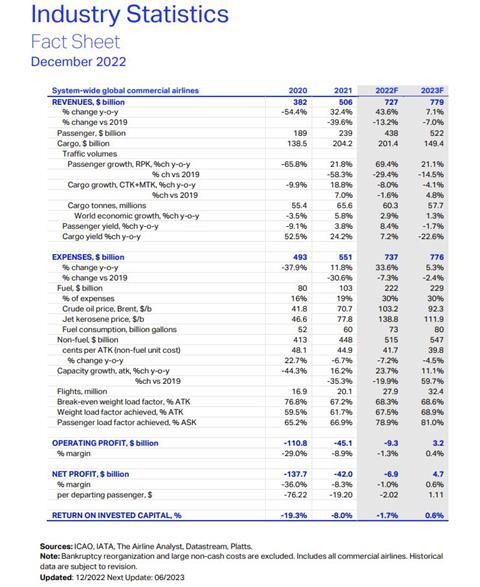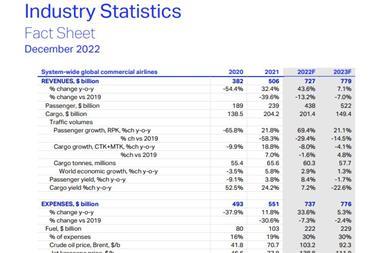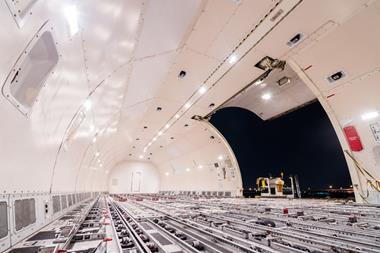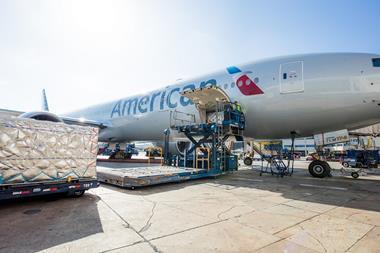Air cargo traffic is predicted to drop by a further 4% next year, while yields and revenues are also expected to weaken compared with this year's levels.
Speaking at the IATA Global Media Day, the airline association's head of policy analysis Andrew Matters revealed its predictions for next year.
He said that cargo volumes are expected to fall 4.3% year on year to 57.7m tonnes, following on from an 8.1% fall this year to 60.3m tonnes.
"This reflects the challenging global economic backdrop in terms of global economic growth but also in terms of international trade," Matters said.
He added that as a result of load factors returning to pre-Covid levels, yields are expected to decline by around 22% next year, following on from a 7% increase this year, a 24% increase in 2021 and a 50% increase in 2020.
Matters said that current yield levels were unsustainable.
"It (22%) sounds like a big number and quite dramatic but it isn't too unreasonable given the very strong increases we have seen in recent years," he explained.
Airline cargo revenues are expected to fall around 25% next year around be $149.4bn, although Matters pointed out this was still around 50% higher than pre-Covid levels.
"The exceptional period that we have had looks like it is coming to an end. We started to come back to levels across a number of these variables that we are more accustomed to."
Another factor raised by Matters was that freighters deliveries are increasing in a cooling air cargo market.
However, he added that there were potential upside risks to the demand forecast.
"We think the air cargo market is cooling after what has been a very strong and unusual period," he said. "We expect that this will continue into 2023.
"But it is important to note that it is not all bad news, a lot of it is just coming back from unusually high, or unsustainably high levels.
"Cargo revenues are still going to be around 50% higher than pre-pandemic levels.
"In terms of the risks around the forecasts, it is very easy to think of the downside risk, but there are also upside risks.
"If, for example, the conflict in Ukraine was resolved quickly we'd expect to see business and consumer confidence rebound quite quickly and if that happens we can expect to see a recovery in economic activity, a recovery in consumer spending, a recovery in business investment and a recovery in international trade.
"Also, supply chain disruption is continuing and to the extent that it will impact the shipping industry could present a source of upside risk for air cargo as well.
"We might get some trade that goes from shipping to air cargo for businesses to plug some gaps in supply chains."
"And if we were to get a sudden turnaround in confidence that fed through to demand, often what we find is that first recovery upswing favours air cargo because businesses need to get inventory into their warehouses and stock onto their shelves quickly."

https://www.aircargonews.net/policy/air-cargo-security/dhl-global-forwarding-first-to-achieve-iata-ceiv-li-batt-in-the-uk/















